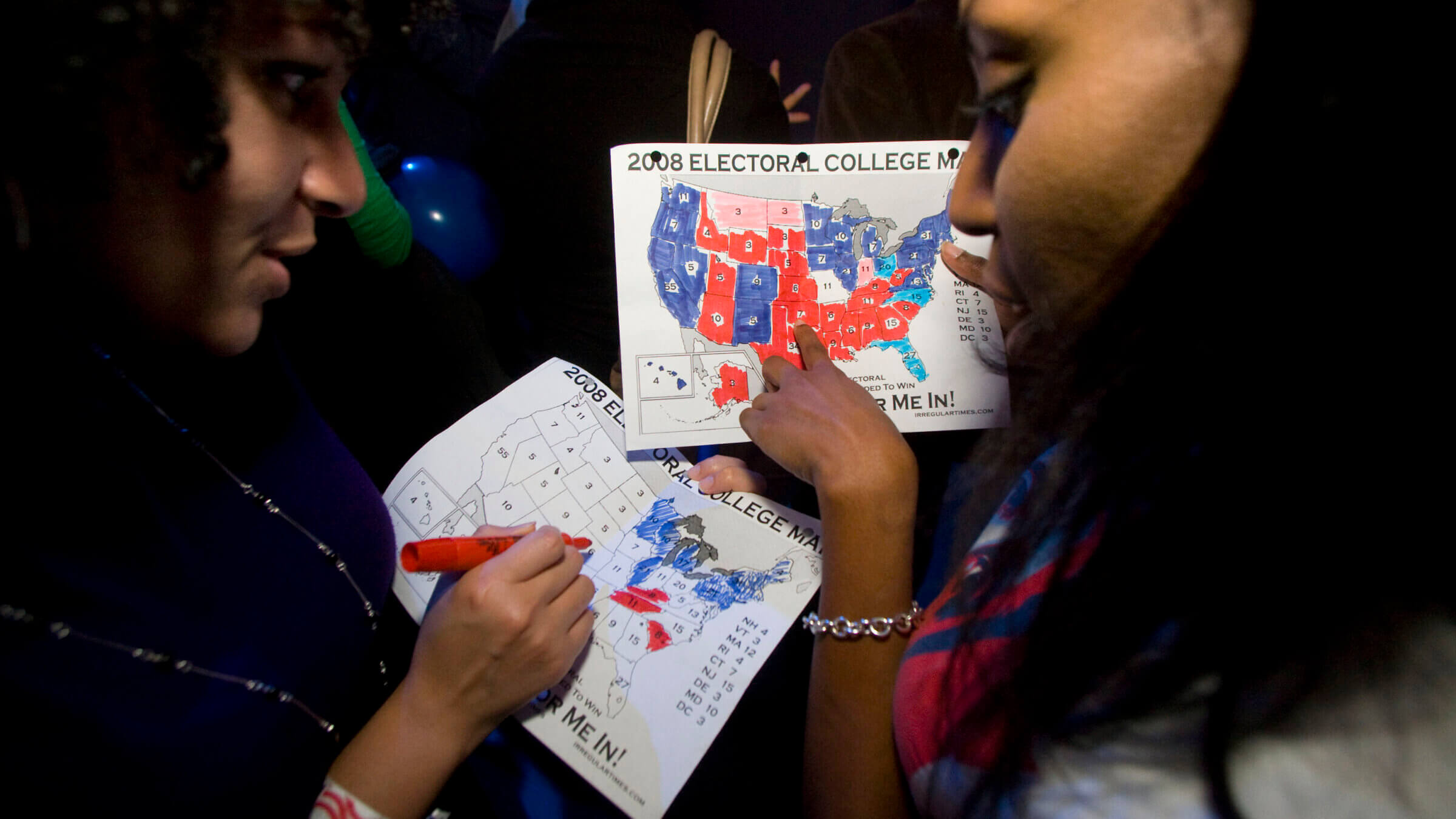Does the Electoral College strengthen or weaken Jewish influence on the election?
The system is often criticized for making some voters — including Jewish ones — more valuable than others

Why we’ll be coloring in maps on election night. Photo by Jb Reed/Bloomberg via Getty Images
About 7.5 million Jews live in the United States, according to a 2020 Pew study, a number that exceeds the popular vote margin in each of the last three presidential elections. But the presidency isn’t decided by a national voting majority — it’s determined by the Electoral College system, which apportions winner-take-all electoral votes to each state based on their representation in Congress.
The Electoral College system is often criticized for making some voters more valuable than others, both because even the smallest state gets three electoral votes and because swing state voters have more power to decide an election than those in states like Texas and California that have voted the same way for decades. But does it make the Jewish vote matter more, or less?
The answer, as you might have guessed, is that it depends where you live. About a third of the country’s Jewish voters live in the reliably blue states of New York, New Jersey or California, so their votes are generally under-represented in the Electoral College. Add Florida, which has voted Republican in each of the last two elections and is no longer considered a swing state, and that’s more than half the Jewish voters who might feel slighted by this system. But plenty of Jews also live in swing states like Arizona, Georgia and especially Pennsylvania, where the Jewish vote could be pivotal. Pennsylvania — home to 300,000 Jewish voters — was decided by 80,000 votes in 2020. With 19 electoral votes, it’s the biggest Electoral College prize of this year’s seven swing states (and the fifth most-Jewish state by population).
The Jewish Virtual Library published a handy chart this election season detailing the Jewish population and electoral votes by state. If you were plotting your path to Electoral College victory based on Jewish population, you’d need to win the top 12 states with the most Jews in order to get the 271 votes needed, according to the chart. The top 10 states by Jewish population control 238 electoral votes; the top four — New York, California, Florida and New Jersey — 126.
Besides Pennsylvania, the most-watched swing states have Jewish populations ranging from 0.5% (North Carolina) to 2.5% (Nevada), according to the Jewish Virtual Library. The only state with a large number of electors — 40 — and very low Jewish population — 0.6% Jewish — is Texas.














